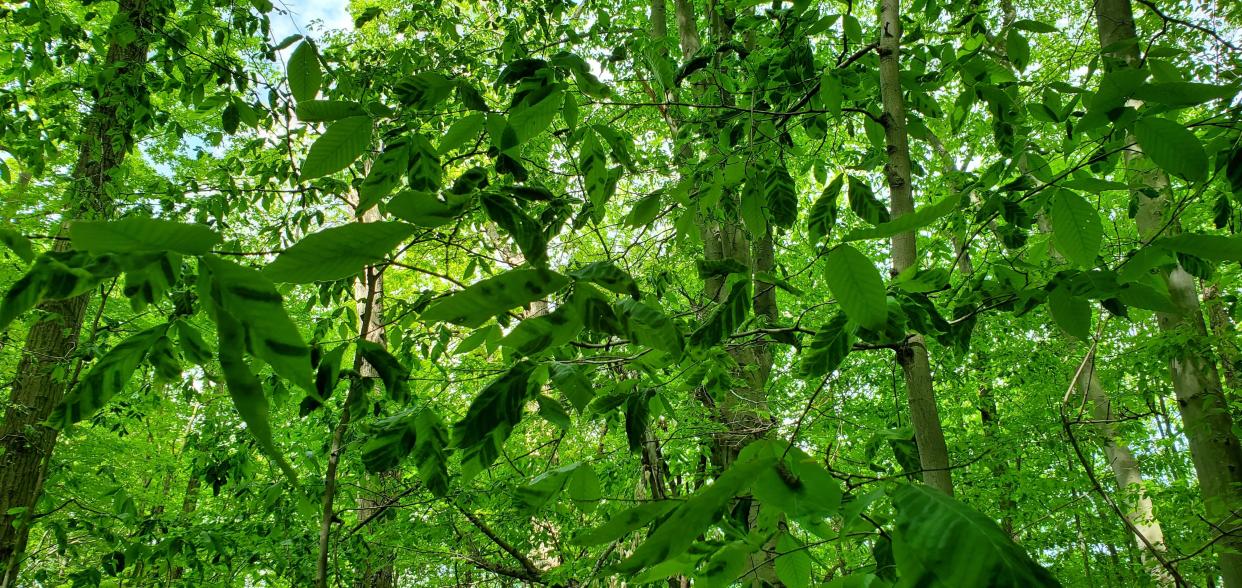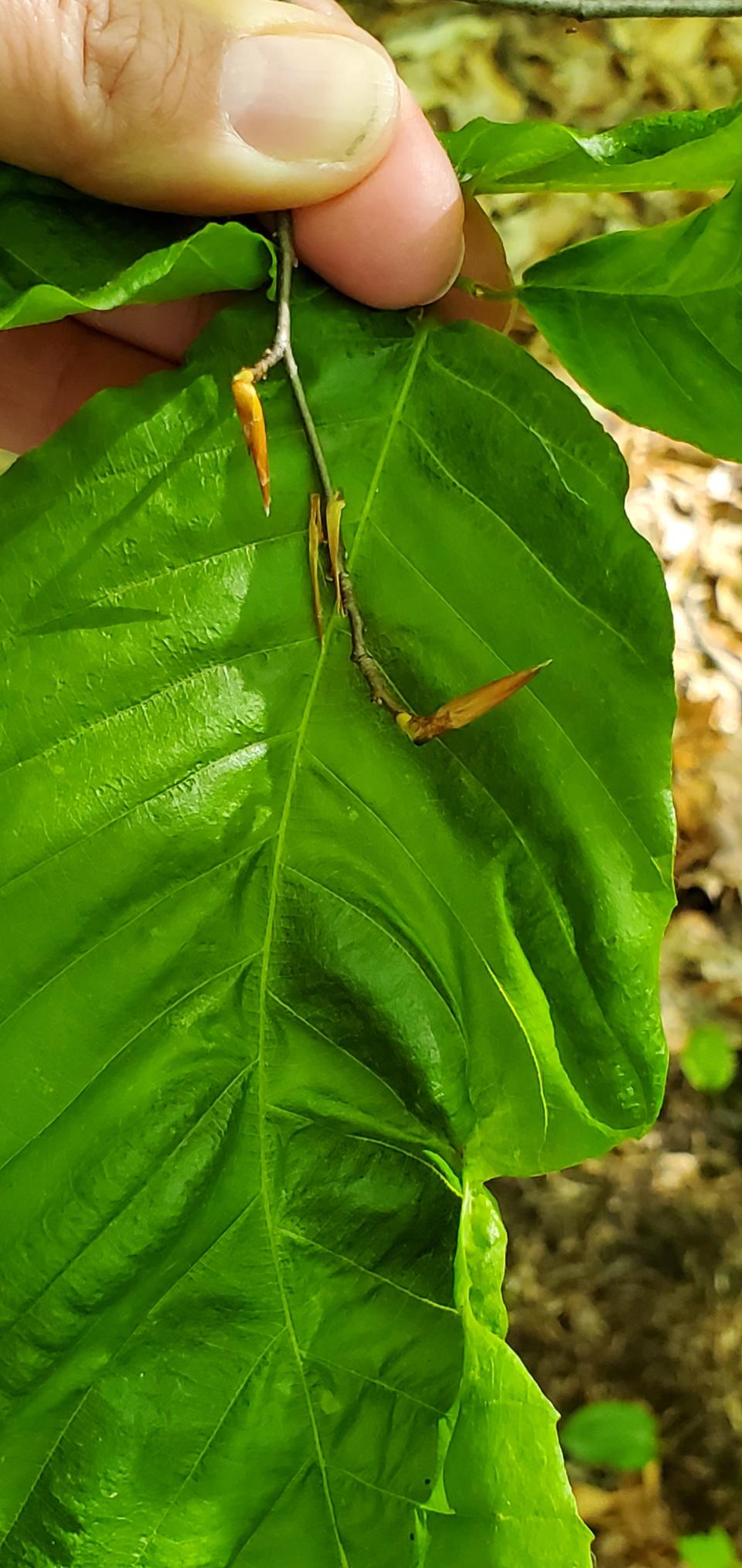Beech leaf disease confirmed in Michigan: How invasive species attacks vulnerable trees

Following its addition to Michigan's invasive species watch list last year, beech leaf disease has been found in an area of St. Clair County, according to the Michigan departments of Natural Resources and Agriculture and Rural Development.
Beginning in 2020, surveys have been conducted across the eastern part of the country after beech leaf disease was detected in Ohio in 2012, the Michigan Department of Natural Resources said.
Michigan is now one of nine states with confirmed cases, the DNR said.
Beech leaf disease harms the leaf tissue of beech trees. According to DNR, there are 37 million American beech trees in the state and the species is important to the forest and its wildlife.

Leaf damage can weaken trees, causing fatal consequences within six to 10 years, the DNR said.
"We don’t yet know all the ways the disease might be spread, and currently there are no known treatments to protect trees or reduce disease impacts," said DNR forest health specialist Simeon Wright.
Michigan beech trees have already been made vulnerable by beech bark disease, and with no remedy for either sickness, the trees could face a deadly outcome in years to come, the DNR said.
Using the Midwest Invasive Species Information Network, residents of St. Clair County reported suspicions of a beech leaf disease outbreak after spotting unusual looking leaves on their land.
The DNR said the report prompted the department to send forest health staff to visit the area and retrieve samples for testing to be done by the Michigan State University Forest Pathology Laboratory.
The U.S. Department of Agriculture’s Animal and Plant Health Inspection Service confirmed the results and the test for beech leaf disease was positive, according to the DNR.
“Though beech leaf disease was detected this spring, the condition of the leaves and number of trees affected at this location suggest the disease has been there for more than a year,” Wright said. “Because symptoms are slow to emerge, it is difficult to detect the disease before it is established.”
More: Oak wilt's spread threatens Michigan trees
More: Gypsy moths could strip trees bare in southern Michigan this year, experts warn
For residents of Michigan on the lookout, the symptoms of beech leaf disease include "damaged leaf tissue, dead buds and darkened, thick tissue bands between leaf veins," the DNR said.
As time passes, distortion and curling of leaves may occur, causing them to become dry or yellow, according to the DNR.
On heavily infested trees, major leaf loss may occur at the start of summer, but the DNR said that there is not enough information on beech leaf disease yet to know the full long-term effects.
"State agencies are working with the U.S. Forest Service, several other states, Ontario and Michigan State University to better understand the disease and the potential effects it will have in Michigan’s forests," Wright said.
Since the disease may be spread by movement of infected material, the DNR said that foresters should be cautious and not move beech material and firewood from areas of known infestation.
In an attempt to manage the new disease, the DNR Forest Health Program plans to train Michigan's cooperative invasive species management area staff to verify and collect samples.
The DNR encourages landowners to be on the lookout for the disease and take photos if there are any sign of symptoms.
However, residents should be aware of similar invasive species and know how to tell the difference so false reports are not made, the DNR said.
Sightings of beech leaf disease can be reported by contacting the DNR Forest Health Division at DNR-FRD-Forest-Health@Michigan.gov or 517-284-5895, using the Midwest Invasive Species Information Network online reporting tool, or downloading its smartphone app.
This article originally appeared on Detroit Free Press: Beech leaf disease confirmed in Michigan: How it affects trees

